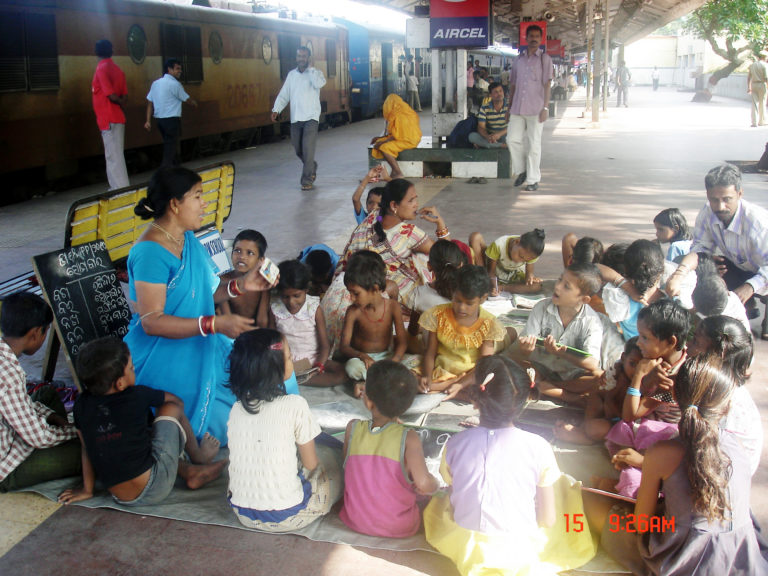BHUBANESWAR: Our compulsory public educational system is supposed to bridge the gap of schooling among all students regardless of their socioeconomic status. However, studies elucidates that the gulf of disparity has actually increased due to such policies.
India is home to nearly half a billion children many of whom dwell in extreme poverty. To eradicate this condition, Inderjit Khurana, an experienced teacher and director of her own school, founded the Ruchika Social Service Organization at the city in 1985. Initially a “single platform school”, it has now mushroomed to 12 schools. It conducts multiple welfare programs and is currently reaching out to over 4,000 underprivileged children and their families.
The railway platforms of Bhubaneswar have long been a breeding ground of despair. Underprivileged children of all ages have been subject to frequent abuse, starvation and neglect – preyed upon for the purposes of child labour and even prostitution. The organisation, with the help of a handful of dedicated volunteers, has committed itself to extricate these children from their apparently hopeless lives by providing safety, nutrition and education.
In all its activities, RSSO recognizes and understands the totality of the lives of the children it serves. Acknowledging that the complex demands of simple survival often preclude a child’s ability to attend regular school, RSSO offers a style of non-formal schooling that takes these issues into account, making education accessible, meaningful, and significant for even the most deprived child.
Through its innovative and varied programs, Ruchika seeks to provide all children with a jovial school atmosphere that incorporates education and skills relevant to a meaningful and dignified existence. Equipping children with the knowledge necessary to become active participants and positive contributors to their communities is also a priority for this organisation.
